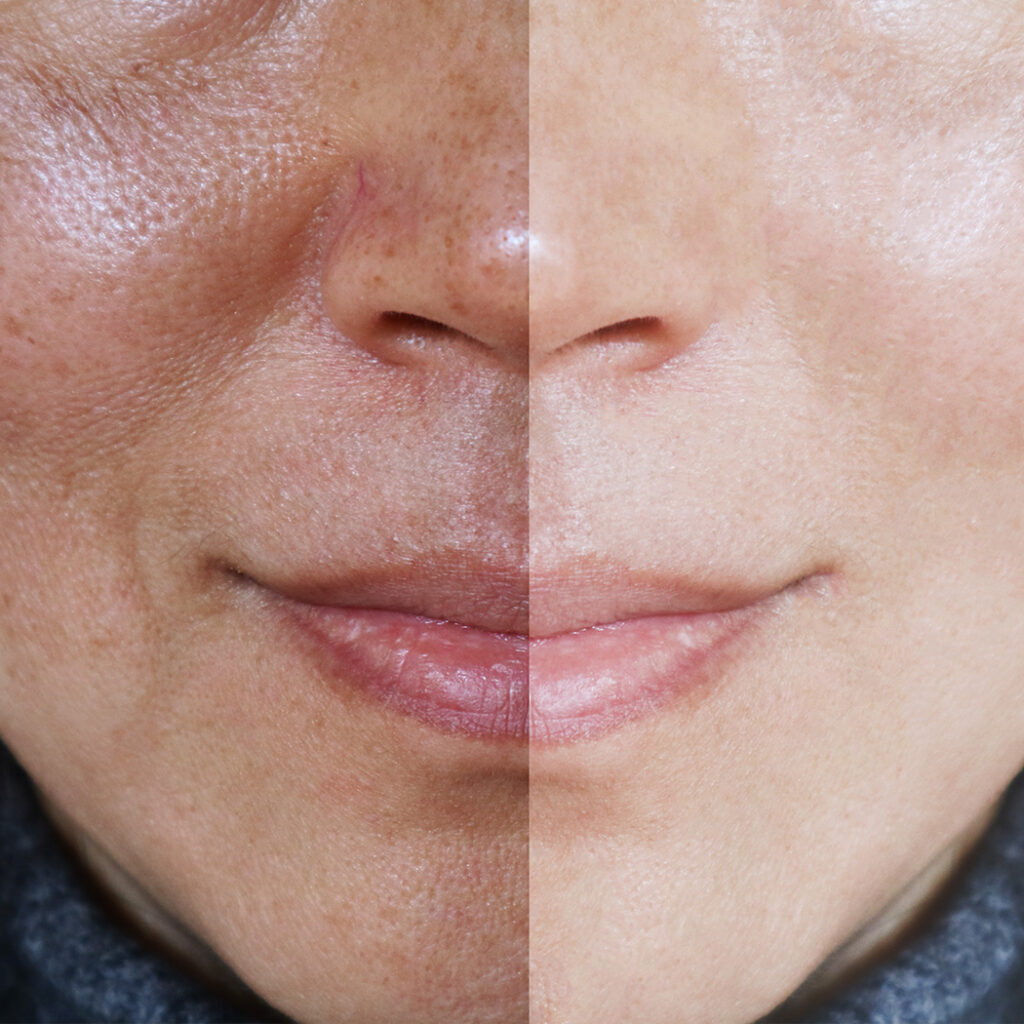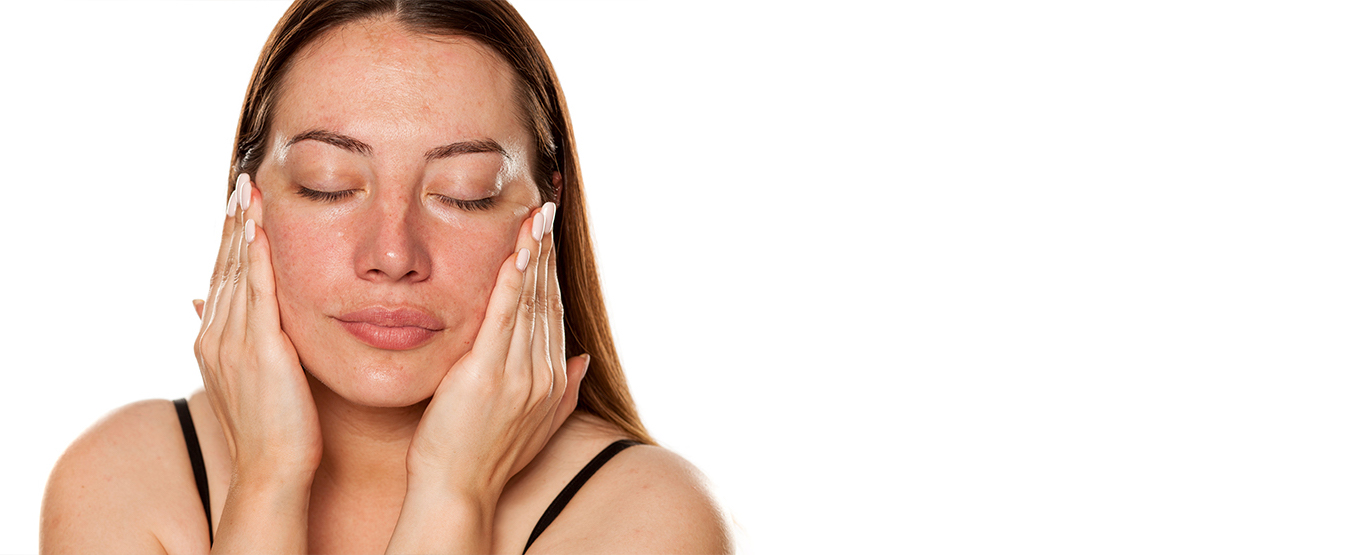Certain dark spots on the skin are present at birth, others may develop unexpectedly. Melasma is a condition often dubbed “the mask of pregnancy” – this concern occurs most commonly in pregnant women. It manifests as the appearance of dark spots on the skin, particularly the face. Addressing this condition alone can be a struggle, but the good news is that if you have this problem, we can help. McLean & Potomac Dermatology offers several options for addressing melasma and getting you the skin you deserve. Get in touch today to learn more.

What Causes Melasma?
Sun exposure plays a major role in the development of melasma. Ultraviolet light (UV) stimulates the skin’s melanocytes which causes darker pigmentation. A small amount of sun exposure can make this condition return after fading. This condition often worsens in the summer due to increased sun exposure.
- Visible light, such as light in a room or a computer screen, can contribute to melasma.
- Other UV sources include light from sunroofs, window light in offices, car-side windows, or sunroofs.
- Heat can also cause this issue, such as that caused by cooking and heat in areas with a warm climate. Wearing metal-rimmed sunglasses absorbs more heat and can worsen melasma. Frequent exposure to heating lamps, hair dryers, or lamps used to treat seasonal affective disorder can be triggers.
- Hormonal changes, such as those caused by pregnancy, birth control pills, hormone-releasing intrauterine devices (IUDs), hormone replacement therapy, nursing, or extensive amounts of soy intake, can also contribute to the development of melasma. Autoimmune thyroid disorders, chronic stress, or adrenal dysfunction also trigger the melanocyte-stimulating hormone (MSH).
- Phototoxic reactions by scented or deodorant soaps, toiletries, cosmetics, and fragrances.
How Do We Address Melasma?
Melasma is never cured; however, it can be maintained. Treatments to fade this condition include the use of:
- Skin lightening/bleaching creams containing hydroquinone
- Skin lightening pads
- Chemical peels
- Fractional Laser Treatments
- Clear + Brilliant®
- Intense Pulsed Light (IPL)
What to Expect From Treatment
Melasma often improves with treatments; however, improvements may take a few months. This depends on your chosen treatment method, which we will discuss during your initial consultation. This condition may recur after treatment, so taking the following precautions can help:
- Sun protection is the most effective way to prevent this condition. Sunscreen with SPF 60 or more every day is recommended. We also recommend the use of a wide-brimmed hat when exposed to the sun. Sunscreen should block UVA/UVB rays and visible light. Look for sunscreens containing iron oxide, which blocks visible light.
- Discontinuing medications that affect hormones is the only way to prevent melasma from worsening if hormonal changes trigger your specific case.
- Antihistamines can reduce melasma, as it has been found that increased mast cells, immune cells that cause allergies in the skin, have been associated with melasma.
- Coffee, blueberries, and red wine contain antioxidants that have been found to help control melasma.
- Niacinamide supplements have also been found to help with it because they inhibit melanocytic transfer (the transfer of pigment to the skin).
Find Melasma Treatments in McLean, VA, or Potomac, MD
Give your skin the best treatment here at McLean & Potomac Dermatology! We offer several options for reducing the appearance of dark spots caused by melasma. Connect with one of our locations today to learn more and receive the care that you deserve.
You can reach us by messaging us through the Klara app on this website or giving us a call at (703) 356-5111.


